
6 minute read
BACK TO SCHOOL
In a one-week double-barrel extravaganza, the Access Bank Fifth Chukker Charity Shield Partnership opened Africa’s largest primary school for classes and delivered the annual UNICEF Charity Shield Polo Tournament as well.
Aptly scheduled for Children’s Day, 27 May, 2022, the Access Bank Fifth Chukker primary school Maraban-Jos, Kaduna finally threw open its gates for commencement of classes right in the heat of the 2022 Access Bank UNICEF Charity Shield Polo Tournament.
In all, 3,600 primary 4-6 pupils were assigned to the 60 available classrooms while the junior classes remained in the old school for now. On completion, the entire project will boast a total of 120 classrooms and enrol about 12,000 pupils in two daily shifts. There is no gainsaying that the primary school has generated premium CSR branding for Access Bank and Fifth Chukker.
The wife of the governor of Kaduna Mrs Ummi El-Rufai turned up with state education officials for the occasion and were received by Fifth Chukker’s chairman Adamu Atta, School executive consultant Abiodun Adegboye, as well as representatives of Access Bank, UNICEF and the host communities.
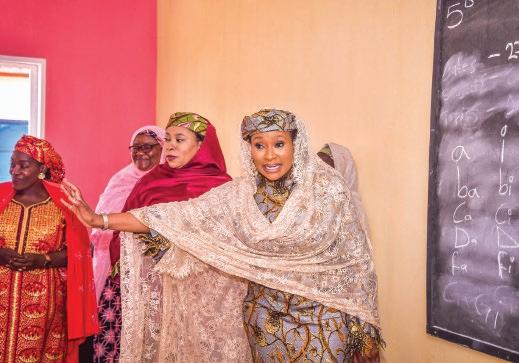
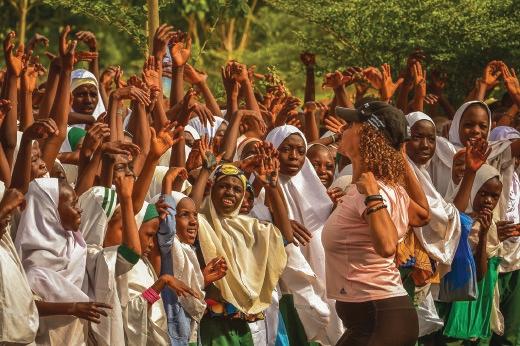
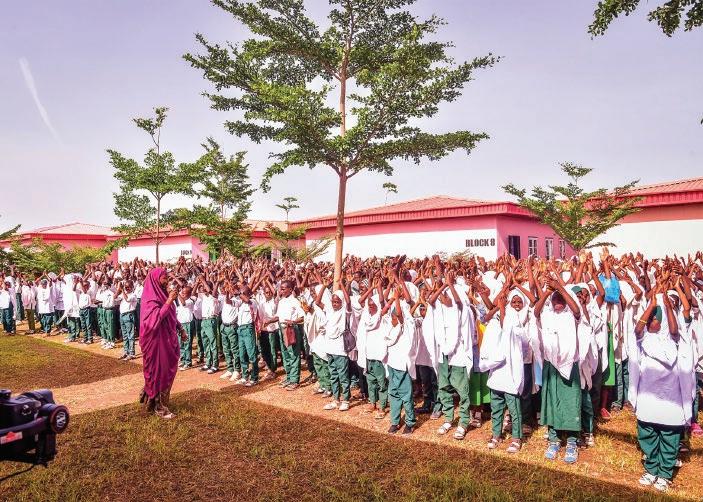
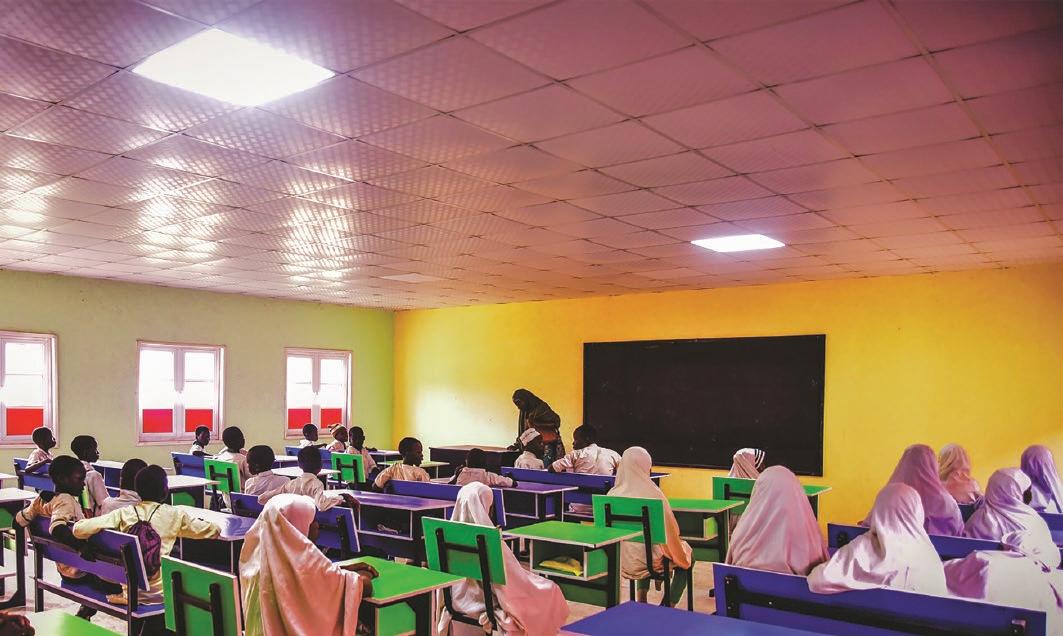
Addressing the gathering, El-Rufai, who also doubles as the UNICEF Charity ambassador for the school, commended Fifth Chukker and Access Bank for touching the lives of the less privileged; decried the low standard of education in Nigeria; and called on parents, particularly in the Mararaban Jos community to take advantage of the school which has provided free and quality education for their children. “I am very proud to be part of this project, I am happy for the children.” she added.
Sections of pupils from the school were conveyed daily to Fifth Chukker to experience the Access Bank UNICEF Charity Shield polo tournament. The polo climaxed in cliff-hanging triumphs for Kaduna Fifth Chukker, Jos AM&C, Zaria Badako Zaz and Afden Petroleum teams as they emerged champions, winning the Charity Shield, Access Bank Cup, UNICEF Cup, and Usman Dantata Cup, respectively, in the high-goal, medium-goal, intermediate and low-goal categories.
Pivoted mainly by professional players from Argentina and South Africa, the more than a dozen teams in the competition contested fiercely for the points all the way to the finals, thrilling polo buffs and high profile guests, including the Economic and Financial Crime Commission (EFCC) Chairman, Alhaji Abdulrasheed Bawa and Mrs El-Rufai.
The charity shield partnership of Fifth Chukker, Access Bank and UNICEF prides itself on 15 years of solid support for education, gender and health solutions in Northern Nigeria communities. This approach aligns perfectly with the partners’ vision of creating platforms to highlight and support charitable endeavours across the African continent.
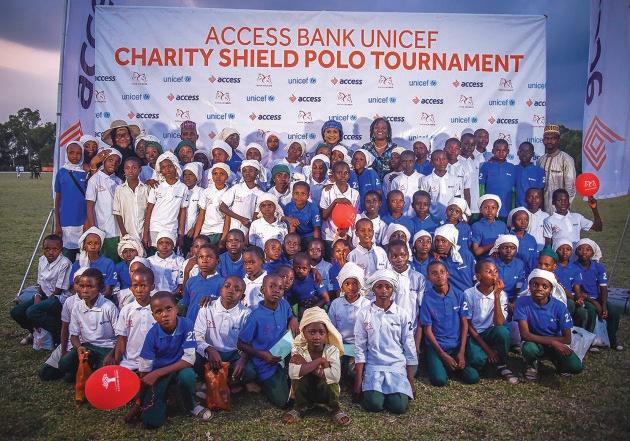
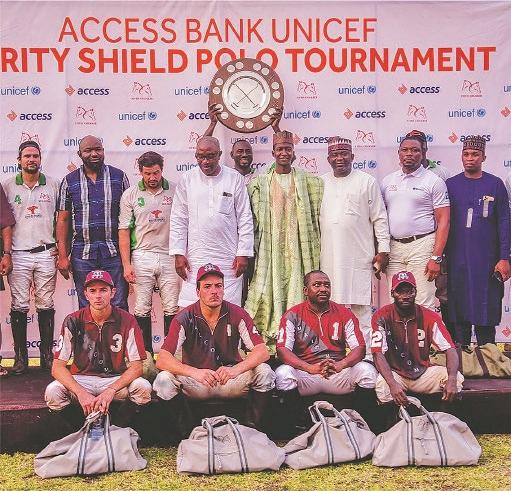
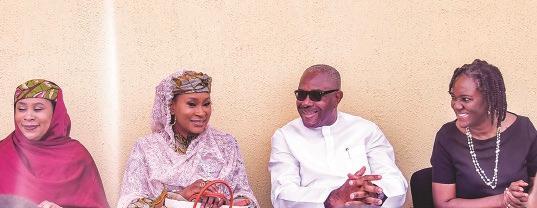
THE ANATOMY OF A BILLION NAIRA IMPACT PROJECT
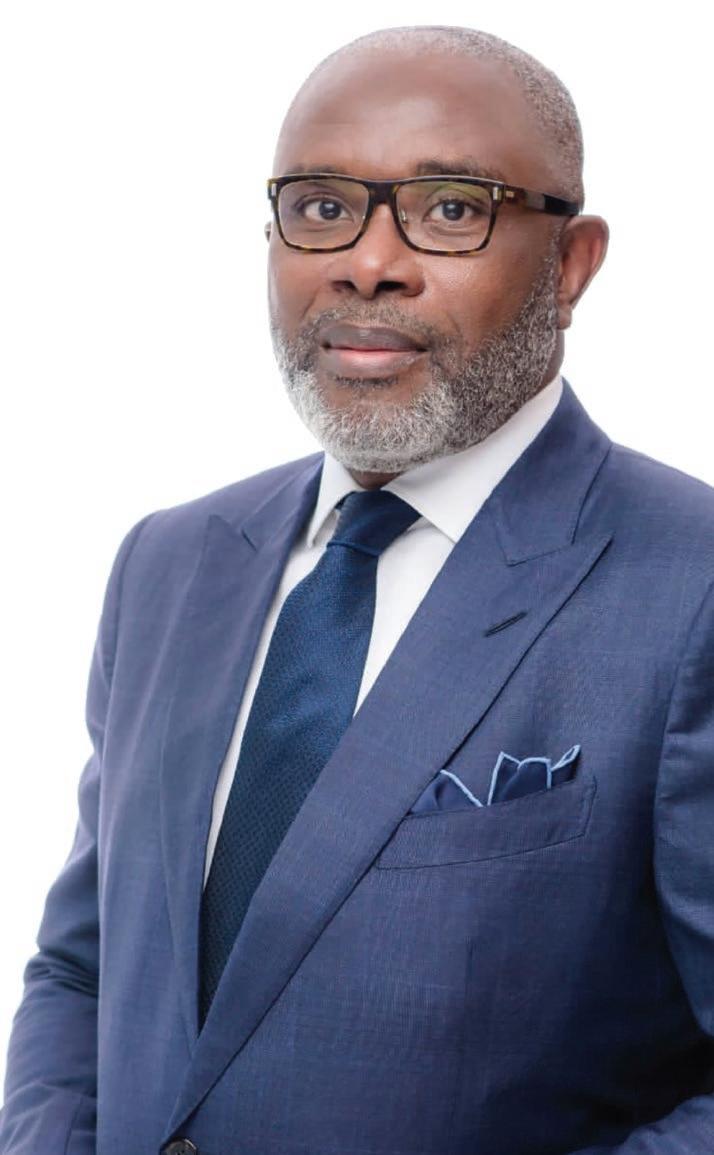
The commencement of classes at the Access Bank Fifth Chukker Primary School attracted a scrum of print, radio and television journalists, who thereafter had a briefing session with Fifth Chukker Chairman Adamu Atta. During the discourse, Atta chronicled the historical spectrum of the project - from the original intent of the Access Bank Fifth Chukker partnership to upgrade the old school, to the building of a massive new one, and the emerging philosophy of aligning future school operations with stakeholder value in a profound re-calibration of the partnership’s CSR investment strategy.
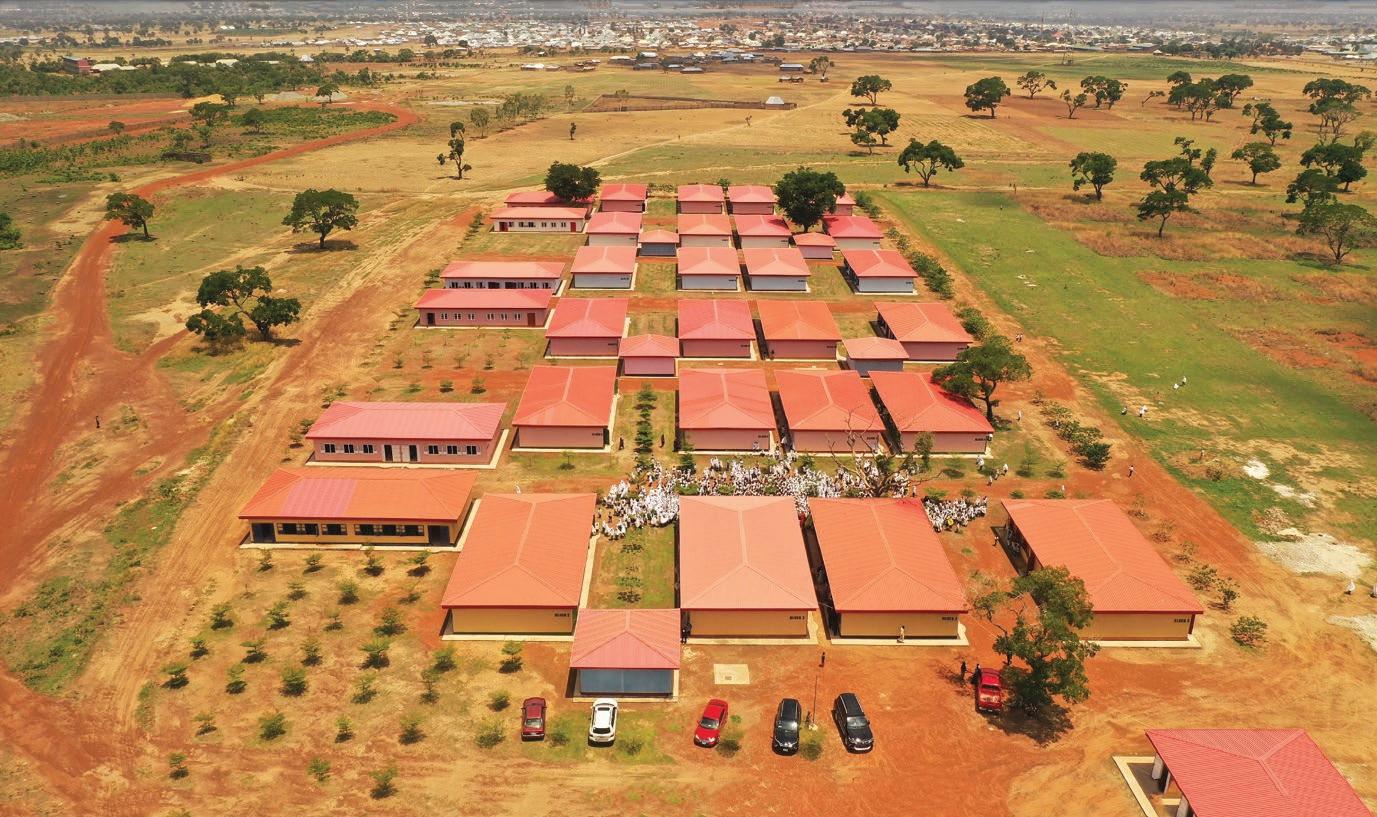
THE EARLY VISION…
About 13 years ago, Aigboje Aig-Imoukhede and myself looked at the situation of education, particularly in Northern Nigeria, and decided that it was necessary to create a platform that could extend some kind of philanthropic support to certain challenges as we saw them in education and healthcare delivery
So we adopted the Mararaban Jos Primary School (close to Fifth Chukker) which had barely 500 pupils at the time. We also co-opted our friend and partner, Herbert Wigwe,(who later succeeded Aig as Managing Director of Access Bank) into our vision.
Over the next years, Fifth Chukker and its partners contributed immensely towards teaching capacity development, infrastructure upgrade, provision of education instruction materials and medical aid for the school and the Mararaban Jos community. The impact was immediate as parent started transferring their children from other schools.
NEW CHALLENGE…
Our sense of satisfaction of what we had achieved didn’t last very long, though, because following the introduction of school feeding by the government in 2016, the population of pupils ballooned from 500 to 12,000. This, of course, stretched every facility to breaking point, necessitating further and bigger intervention by us.
To be clear, the school we adopted was ab initio not even adequate for 500 pupils. With this new development we decided that we might as well elevate our magnanimity from routine upgrades to sustainable long-term impact solutions.
PROJECT BRAND-NEW SCHOOL…
In 2019, we decided to embark on a brand-new school project and create a platform where 12,000 pupils could receive standard curriculum education. By the end of that year we had built our portion of the school (the Kaduna state government had pledged counterpart funding for additional 60 classrooms). Unfortunately, it was the onset of the global pandemic so we could not enrol the children into the school and had to wait another year and half.
But that was not altogether a bad thing because during that period we understood the virtues of digital platforms, and we decided that we will introduce virtual learning into the curriculum of the school.
SUPPORT NETWORK…
What you see today is the outcome of the collaboration of Fifth Chukker, Access Bank, UNICEF with a number of private individuals and state actors who continue to support and encourage the platform. It clearly shows there is always a way where there is the will.
Our gratitude also go to the wife of the governor of Kaduna state, Her Excellency Ummi El-Rufai. She is the UNICEF Charity Ambassador for the school and has, even against difficult situations, given the school her tremendous support and time.You know it’s one thing to extend resources but it’s another thing to be physically involved and personally partake.
A VISION FOR THE FUTURE…
We still have some way to go, this is an impact project based on stakeholder concept and circular economy construct. This means that we shall have a stakeholder configuration where everybody that is involved in this project is a direct beneficiary of a sort. So the teachers, the pupils, the parents, the service providers and the community will all be empowered at different levels of this initiative.
For instance, our idea for school feeding is that the parents who are farmers will grow the food. Female parents under the gender empowerment platform will cook the food and be paid to supply the kids in the school. That also works with uniforms where tailors would be engaged to sew school uniform for the pupils. It will be likewise for carpenters and furniture as well as other trades and services.
So, once we’ve weaved this ecosystem of interconnected groups and interdependent interests, we would have set in motion the wheel of a circular economy, with production, consumption and service systems that promote efficiency and sustain the circular use of local material, human resource and natural capital. This scheme will generate overall maximum benefits for the enrichment of the community, the protection of the environment and the sustainability of the platform.
Really, it is the beginning of an exciting period for us. We want to see the community transformed through universal empowerment. We want to promote gender equality in education and economic access, and we want to take those 20 million kids off the streets. This is the first step towards that.












